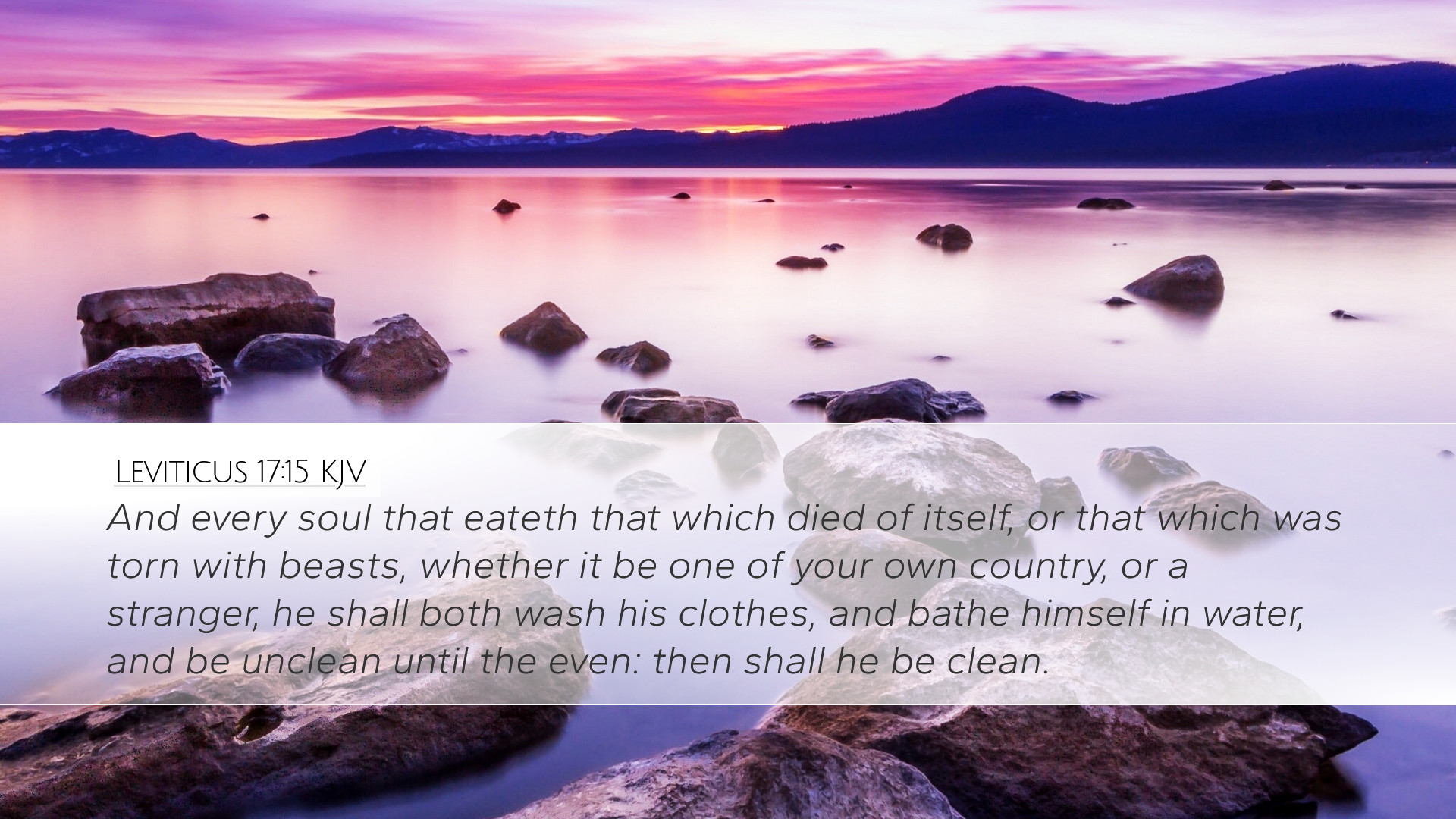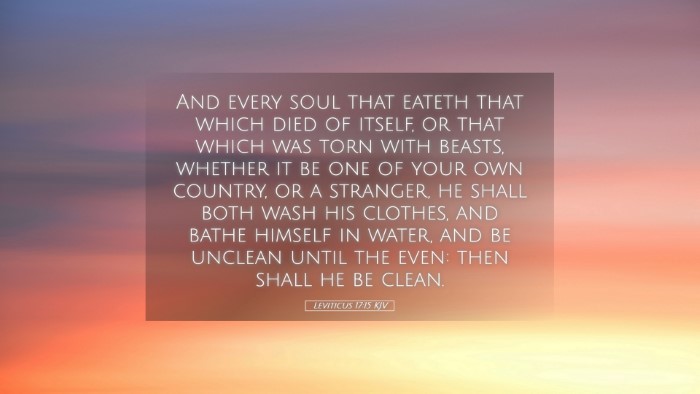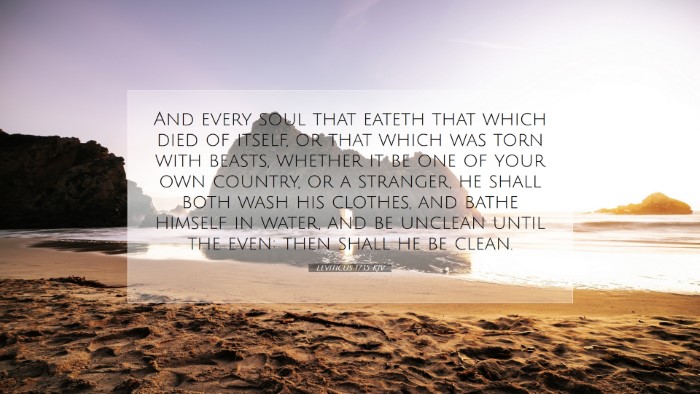Commentary on Leviticus 17:15
Leviticus 17:15 presents an important directive within the Levitical law concerning the consumption of unclean animals. In this verse, the Lord provides clear instruction regarding the dietary practices of the Israelites, particularly focusing on those who might consume a carcass or an animal that has been torn by beasts.
This commentary synthesizes insights from notable public domain commentaries by Matthew Henry, Albert Barnes, and Adam Clarke, aimed at pastors, students, theologians, and scholars.
Text of Leviticus 17:15
"And every soul that eateth that which died of itself, or that which was torn with beasts, whether it be one of your own country, or a stranger, he shall both wash his clothes, and bathe himself in water, and be unclean until the even: then shall he be clean."
Exegesis and Theological Insights
Contextual Background
Matthew Henry emphasizes that Leviticus was written for the Israelites post-exodus, emphasizing holiness and separation from gentile practices. This chapter highlights laws given to maintain ritual purity, especially connected to food consumption, which reflects one's relationship with God.
Holiness and Cleanness
Albert Barnes notes the connection of cleanliness with holiness, asserting that the consumption of carcasses—whether from natural causes or predatory actions—would render individuals unclean. The underlying principle is that God's people are called to maintain a level of purity that reflects His holiness.
Significance of Washing and Bathing
Adam Clarke elaborates on the practical implications of washing clothes and bathing to achieve ceremonial purity. This indicates a physical representation of spiritual cleansing. The act of being unclean until evening symbolizes the time required for restoration, aligning with the theme of grace and the process of sanctification.
Spiritual and Practical Applications
These laws, while specific to the Israelites, carry profound lessons for contemporary Christians regarding holiness and lifestyle choices.
Separation from the Unclean
Application: A core lesson from this text is the call for believers to avoid practices and elements that contribute to spiritual uncleanness. Just as the Israelites were cautioned against consuming unclean meat, believers are encouraged to refrain from participating in immoral or unholy behaviors.
Understanding Impurity
Application: The resulting uncleanness from consuming carcasses not only had ritual implications but also highlighted the nature of sin and its consequences. Modern believers can draw from this understanding to consider the weight of their spiritual choices and the resultant impact on their relationship with God and community.
Emphasizing Restoration
Application: The prescribed actions of washing and bathing signal a deeper narrative of forgiveness and restoration. For pastors and theologians, this encourages the sharing of the grace of God that extends to those who seek restoration after their fallings.
Historical and Cultural Considerations
These dietary laws were part of a broader cultural identity for the Israelites. The dietary restrictions served to distinguish them from surrounding nations, reinforcing their unique covenant relationship with God. This was both a practical and symbolic action, as noted by Clarke when discussing the societal implications of abiding by such laws.
Contemporary Relevance
While Israel's specific dietary restrictions may not apply directly to modern Christians, the principle of living distinguishably remains significant. Christians are called to be 'in the world but not of the world,' maintaining their identity in Christ while reflecting His holiness in all spheres of life.
Conclusion
Leviticus 17:15 embodies a multifaceted understanding of purity, community identity, and holiness. This commentary, drawing from the insights of Henry, Barnes, and Clarke, emphasizes that the principles contained within these ancient regulations continue to resonate with spiritual truths today. For pastors, students, and scholars, the lessons of spiritual cleanliness, the commitment to holiness, and the call for restoration provide foundational truths that not only enrich personal faith but also inform community practice.


